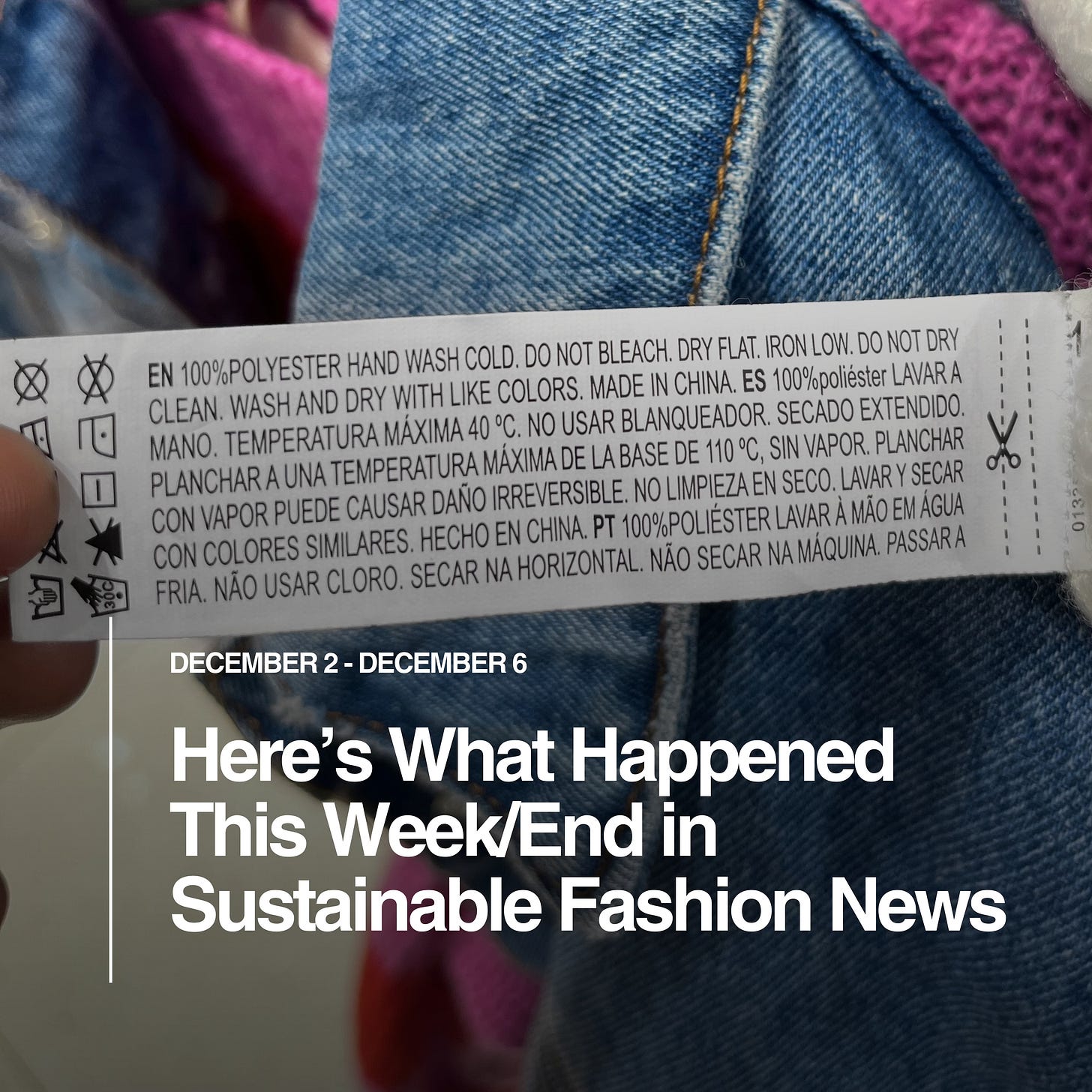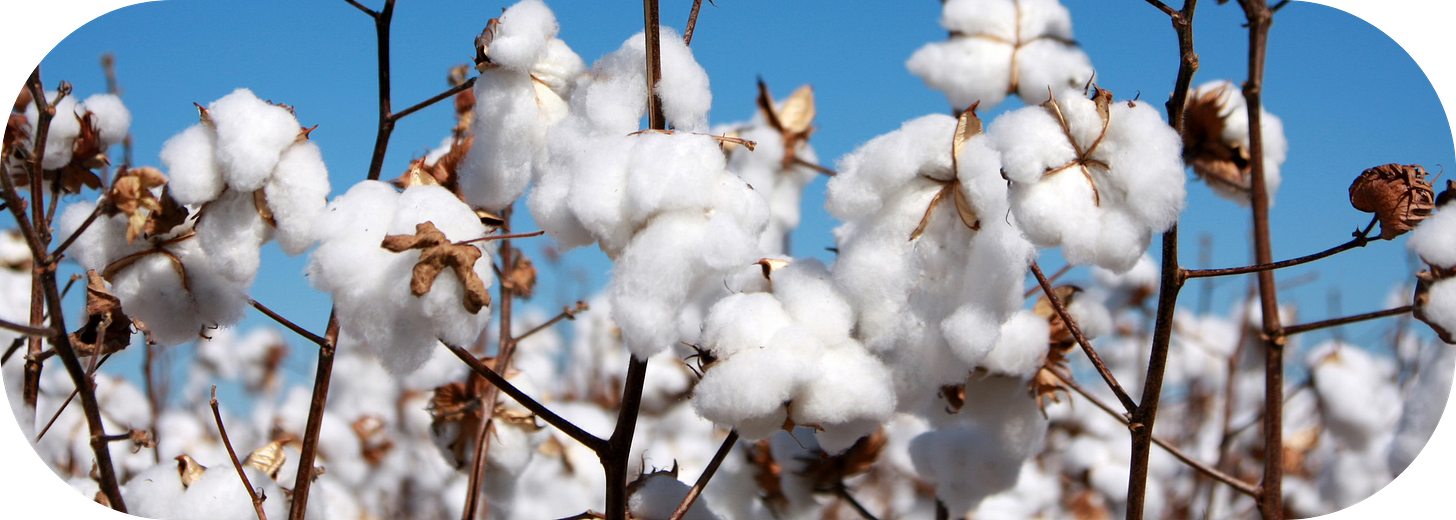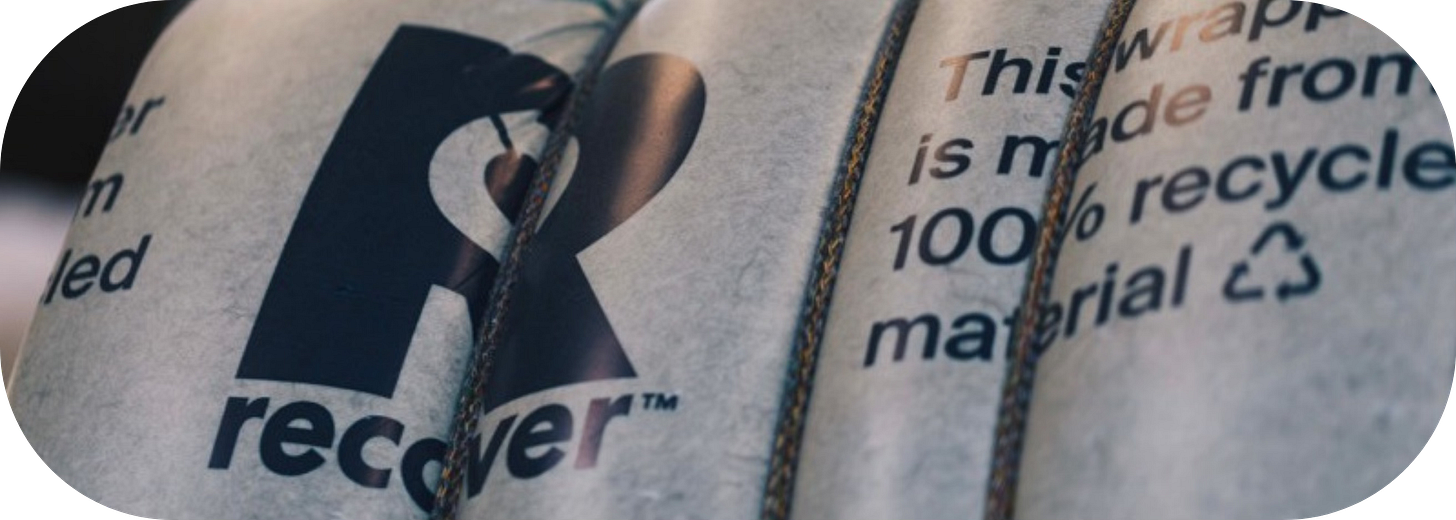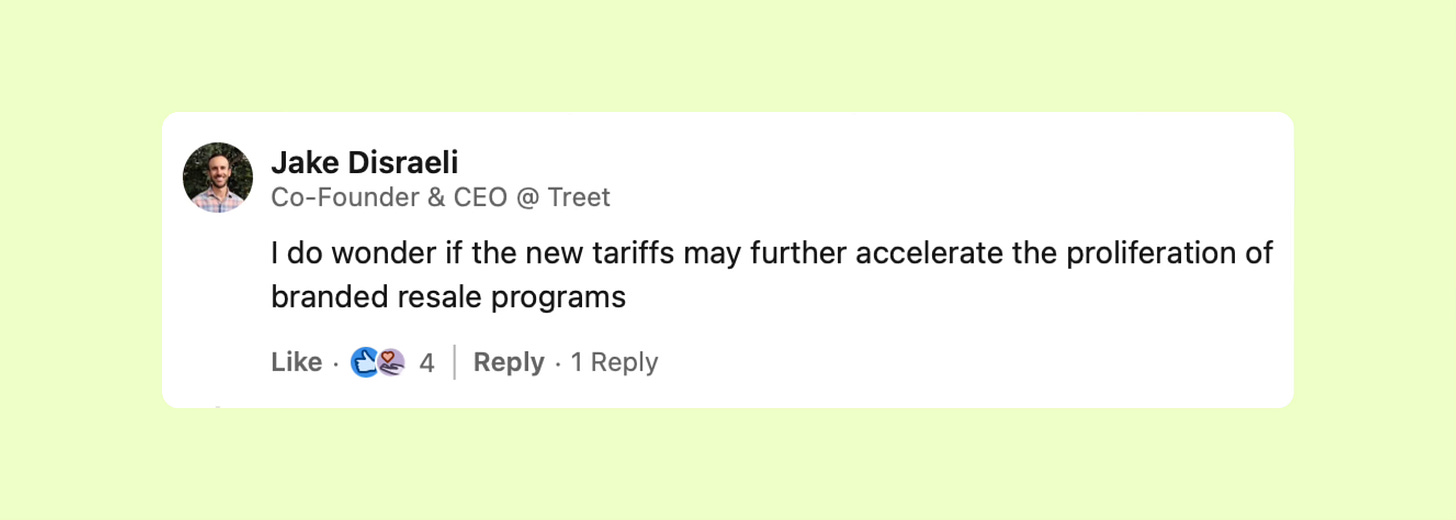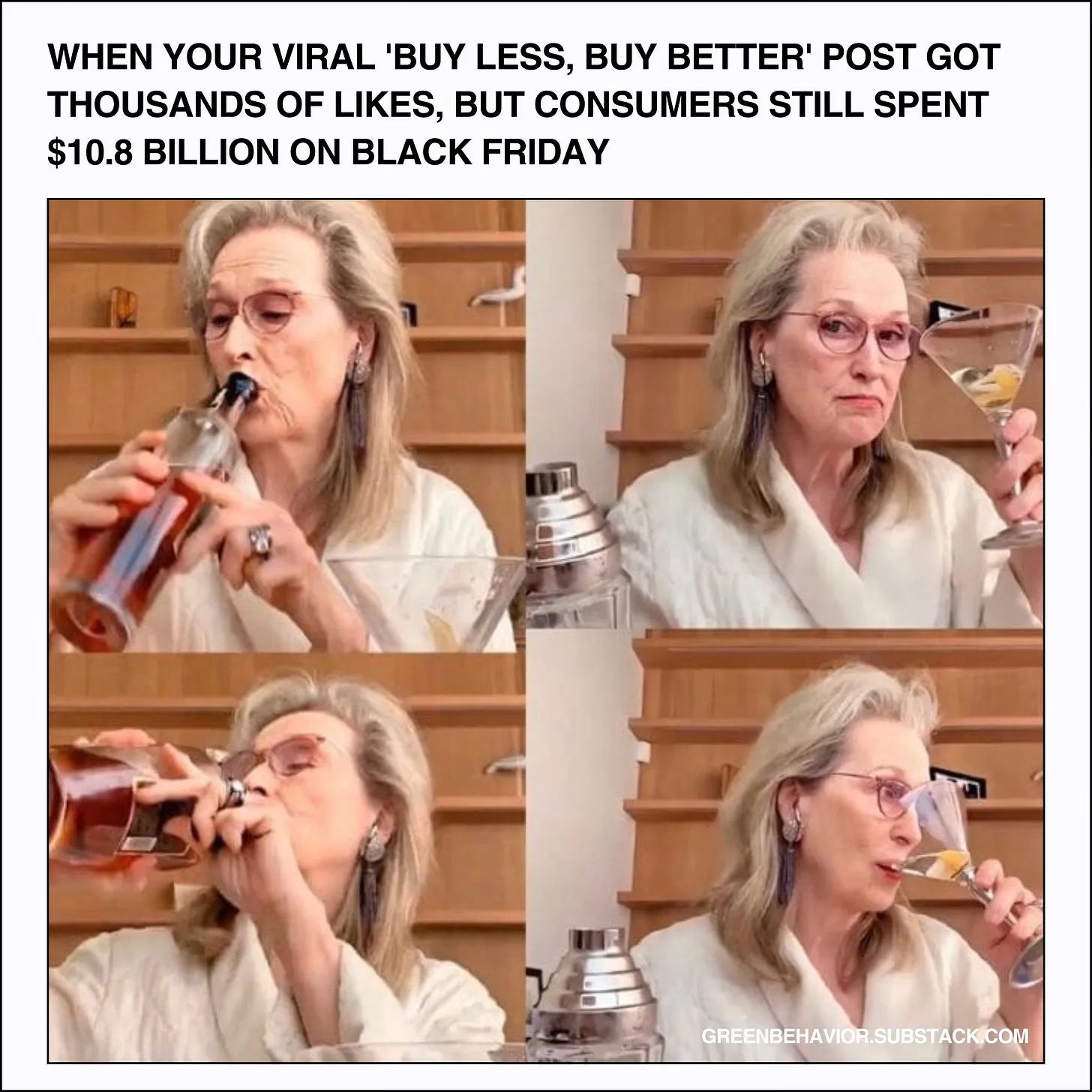Better Cotton Joins EU Metrics Debate, Textile Exchange Calls for a Post-Growth Paradigm Shift & More Industry News
Plus 16 new sustainability jobs on the SFF Job Board! 💼
December 7, 2024
Welcome to Week/End—your quick-hit guide to the week’s sustainability news at the intersection of fashion, ethics, and business. Each week, we do the heavy lifting, curating the need-to-know headlines that matter most, so you don’t have to. Think of us as your shortcut to staying up to date—without the stress or the time drain.
This week in sustainable fashion news:
Better Cotton joins coalition urging EU to revise PEF metrics.
Textile Exchange advocates for regenerative growth and equity in new report.
Canopy reports 71% of MMCF producers meeting top sustainability standards.
EPA adds six new standards and labels for clothing and uniforms.
Xinjiang Cotton Association calls on brands to resume sourcing amid forced labor allegations.
Patagonia CEO highlights transparency over marketing in sustainability efforts.
16 new jobs added to the SFF Job Board.
… and more!
Let’s dive in!
Better Cotton Joined Make the Label Count to Challenge EU Sustainability Metrics
Better Cotton joined the Make the Label Count coalition, alongside over 50 natural fiber organizations and environmental groups, to call for an urgent revision of the European Commission’s Product Environmental Footprint (PEF) methodology. The coalition argues that the current framework inaccurately favors synthetic fibers like polyester by failing to account for critical environmental impacts like microplastic emissions, non-renewability, and post-consumer plastic waste.
The coalition highlights discrepancies in the PEF methodology, noting that a 100% polyester T-shirt is currently rated as 42% more sustainable than a 100% cotton T-shirt. Make the Label Count is urging the European Commission to integrate indicators like biodegradability, renewability, and microplastic release into the PEF methodology to provide a more accurate representation of each fiber’s environmental footprint.
A New Report Shows How Traditional Farming Methods Can Help Soil Health and Fight Climate Change
The International Cotton Advisory Committee (ICAC), in collaboration with international partners, has released findings from a study on improving soil health in cotton farming. The research highlights traditional methods like biochar, bokashi compost, and jeevamrit as effective solutions for restoring degraded soils, enhancing productivity, and mitigating climate change impacts. These practices promote soil fertility, microbial diversity, and carbon sequestration, offering sustainable benefits for smallholder farmers.
Training programs to support the adoption of these methods have been implemented across Africa, India, and Bangladesh. These initiatives have equipped farmers with techniques to balance soil pH, enhance nutrient availability, and boost yields, addressing key agricultural challenges in developing regions. The project underscores the role of regenerative practices in improving soil health and advancing sustainability in the cotton industry.
Textile Exchange Calls for a Post-Growth Paradigm Shift in New Report
Textile Exchange’s ‘Reimagining Growth Landscape Analysis’ critiques the fashion industry’s linear "take-make-waste" model and advocates for systemic change to align with climate, nature, and human rights goals. The report highlights the importance of a just transition, prioritizing equity for workers and communities in the Global South, while promoting regenerative and post-growth principles.
Key strategies outlined include phasing out virgin fossil-based synthetics, scaling circular business models like textile-to-textile recycling, and redistributing resources to safeguard livelihoods. The report also stresses the need for cross-sector collaboration, alignment with government policies, and the adoption of new success metrics to achieve sustainability and equity throughout the supply chain.
EPA Adds Sustainable Clothing Standards
The US Environmental Protection Agency (EPA) updated its ‘Recommendations of Specifications, Standards, and Ecolabels for Federal Purchasing’ for the first time in nearly 10 years. This comprehensive evaluation of private-sector standards and ecolabels adds six new options for sustainable clothing and uniforms, including OEKO-TEX Standard 100, OEKO-TEX Made in Green, Global Organic Textile Standard, Cradle to Cradle Certified, and others. These additions cover both finished clothing and textile fabrics.
With more than 460 ecolabels and standards in the marketplace, the updated Recommendations are designed to help federal agencies navigate the wide array of options and identify environmentally sustainable and safer materials for procurement.
Haven’t subscribed yet? This button is just for you! ⤵️
Canopy Released 2024 Hot Button Report Tracking MMCF Sustainability Progress
Environmental non-profit Canopy, released its 2024 ‘Hot Button Report’, tracking progress in the man-made cellulosic fiber (MMCF) industry, which produces textiles like viscose and lyocell.
The report reveals that 71% of MMCF producers have achieved "green shirt" status or higher, reflecting leadership in phasing out Ancient and Endangered Forests and adopting circular, low-carbon solutions. For the first time in the report’s history, three producers—Aditya Birla (India), Lenzing (Austria), and Tangshan Sanyou (China)—tied for the top ranking, collectively supplying 53% of global MMCF production.
Despite this progress, MMCF production overall has increased, driven in part by capacity expansions from red-rated producers. Canopy stresses the urgent need to scale Next Generation fibers to reduce the industry’s reliance on virgin forest materials and to align with global sustainability goals.
With New Regulation Approaching, the European Fashion Industry Warns of Challenges in Meeting EU Sustainability Rules
The European Fashion Alliance’s ‘Status of European Fashion’ report, presented at the European Parliament, examines the industry's challenges in adapting to upcoming EU sustainability regulations under the Ecodesign for Sustainable Products Regulation.
The report identifies key obstacles, including low textile recycling rates, limited awareness of the Digital Product Passport, and financial and logistical struggles faced by small and medium-sized brands in meeting regulatory requirements. Proposed measures discussed include EU funding and a "Made in Europe" label to support compliance and competitiveness.
Industry representatives voiced concerns about the financial burden of compliance, especially for smaller brands, as well as the competitive disadvantages posed by regions with lower production costs. Policymakers called for actionable solutions to leverage EU funding, with initial recommendations expected in the coming months.
Chinese Cotton Association Urges Brands to Resume Xinjiang Sourcing Amid Forced Labor Concerns
The Xinjiang Uighur Autonomous Region’s Cotton Association has urged international companies to resume sourcing cotton from Xinjiang. This follows remarks by Fast Retailing CEO Tadashi Yanai stating that Uniqlo does not use cotton from the region. The statement, issued on December 5 via the association’s WeChat account, came after calls on Chinese social media to boycott Uniqlo.
The U.S. has restricted trade on goods produced in Xinjiang over forced labor concerns—a claim denied by China. Xinjiang accounts for over 90% of China’s cotton production, making it a major player in global textiles. H&M previously faced backlash in China for halting its use of Xinjiang cotton, while PVH Corp., parent company of Tommy Hilfiger and Calvin Klein, is under investigation by China’s Ministry of Commerce for its sourcing practices.
Think something else should be the priority? Share your thoughts in the comments!
MANUFACTURING:
► Recover, backed by a $100 million investment from Goldman Sachs Asset Management in 2022, plans to open a textile recycling facility in Vietnam by early 2025. This new facility will join its existing operations in Spain, Bangladesh, and Pakistan, producing RMix fiber with an initial capacity of 10,000 metric tons. It will also feature digital traceability tools to improve supply chain transparency.
► In Bangladesh, a meeting at the BGMEA Complex brought together representatives from the Bangladesh Garment Manufacturers and Exporters Association (BGMEA), the Bangladesh Army, the Industrial Police, factory owners, and other stakeholders to address labor and security concerns in the garment industry. Key discussions included maintaining operational stability in industrial zones, resolving disputes between factory owners and workers through dialogue, and ensuring accountability for disruptions. The Bangladesh Army reported that 99% of factories in key areas are currently operating without interruption, reaffirming its commitment to supporting the sector.
SOURCING:
► The International Cotton Advisory Committee (ICAC) has released research on soil health in cotton farming, highlighting traditional methods like ‘biochar’, ‘bokashi compost’, and ‘jeevamrit’ to improve soil fertility and mitigate climate change impacts. Conducted in collaboration with international partners, the project aims to restore degraded soils, improve productivity in developing regions, and promote carbon sequestration through sustainable practices. Training programs have been implemented in Africa, India, and Bangladesh to support smallholder farmers in adopting these techniques.
REPORTS:
► The United Nations Convention to Combat Desertification (UNCCD) released a report at COP16 in Saudi Arabia titled ‘Fashion and Land: Unravelling the Environmental Impact of Fibers.’ The report examines how fiber choices in the fashion industry contribute to land use, soil degradation, and resource demands. It also outlines strategies and policy frameworks aimed at mitigating these environmental impacts.
► ICYMI: Smartex released the second edition of its ‘Modern Textile Factory Report’ last week, spotlighting the role of improved data systems in enhancing efficiency, compliance, and sustainability in the textile supply chain. The report introduces a "Textile Data Highway" framework to streamline communication and decision-making across supply chain stages, while also showcasing tools to improve data quality and utilization. Key areas of focus include managing production costs, speed, quality, and adapting to evolving regulatory requirements.
INNOVATION:
► Cirql, a subsidiary of OrthoLite, has introduced Cirql Zero, an industrially compostable and biodegradable midsole foam for footwear. Designed with supercritical foaming technology, the foam meets industrial compostability standards and can be scaled for production in millions of pairs annually. The launch aligns with Cirql’s recent GRS certification for its Vietnam factory, supporting adaptability across various footwear categories.
INVESTMENTS:
► Rubi has been awarded a $1 million NSF Phase II grant through the Small Business Innovation Research program—an honor given to less than 5% of applicants. The funding will advance Rubi’s carbon-to-cellulose platform, which turns CO2 into cellulose as a sustainable alternative to traditional wood pulp, reducing the environmental footprint of textile production. The grant will also support commercialization efforts, scaling decarbonized textile production, and integrating the technology into supply chains to meet growing demand for low-carbon materials.
► Teijin Limited has invested in Circularise, a blockchain-based platform for supply chain traceability. The investment aims to support Teijin’s efforts to improve operational transparency, align with EU regulations such as Digital Product Passports, and achieve its carbon neutrality goals by 2050. Circularise’ tools are designed to track carbon emissions, source materials with lower environmental impact, and improve resource efficiency within supply chains.
In last week's discussion on President-elect Donald Trump's proposed tariffs and their potential impact on fashion and sustainability, Treet Co-Founder and CEO Jake Disraeli posed an interesting question: Could these tariffs accelerate the growth of branded resale programs? His comment got us thinking, so we asked him to elaborate.
Here's his take:
Many fashion leaders are bracing for turbulent waters if Trump’s proposed tariffs are enacted. Tariffs undoubtedly mean rising production costs, cutting into brands’ already thin margins and potentially leading to rising prices for end consumers. It’s a massive headache.
However, there is a silver lining. This disruption may be a forcing function for more brands to adopt higher-margin business models like resale where they can capture value from the same item three times over. Brands with strong resale programs operate more efficiently and sustainably – they capture more revenue from returned inventory and leverage resale to sell damaged units, samples, and off-price items, all while reducing their footprint.
And then there’s the end consumer… with rising prices, shoppers will turn to secondhand shopping with a vengeance. The number one reason people shop secondhand is always price and tariffs will only amplify the price differential between new and used. Brands will need to adapt to meet their customers where they are.
While resale will never be a cure-all to solve the looming challenge of tariffs, it does present a path for lessening the blow.
Meanwhile, Elizabeth Segran highlights another perspective on the potential impact of tariffs. She suggests that higher prices might push consumers toward higher-quality, durable clothing rather than disposable fast fashion. However, there’s also concern that brands may respond by cutting costs in ways that exploit garment workers or compromise sustainability further.
Both viewpoints show the complexity of this issue and raise questions about how the industry will adapt to these potential changes.
💬 What do you think? Could Trump’s tariff plans push brands to innovate in resale, shift consumer behavior, or lead to something else entirely? Share your thoughts in the comments—we might feature your insights in our next newsletter! ⤵️
Patagonia CEO Ryan Gellert addressed the challenges of corporate responsibility in 2024, highlighting backlash against sustainability and diversity initiatives while underscoring the need for transparency and meaningful action over marketing claims. He emphasized that while Patagonia incorporates organic and recycled materials, pays fair wages, and channels all non-reinvested profits into environmental initiatives, the company remains aware of its ongoing environmental impact and avoids from calling itself "sustainable."
Elizabeth Segran analyzed how President-elect Donald Trump’s proposed tariffs on imported clothing could disrupt the fast-fashion industry by increasing prices on garments predominantly manufactured overseas, particularly in China. Experts suggest these tariffs might encourage shifts in consumer behavior toward higher-quality, durable clothing, though there are concerns about potential cost-cutting measures that could further exploit garment workers.
In her latest reflection, Sustainable Fashion Forum founder Brittany Sierra unpacks the $35 billion spent online during Black Friday and Cyber Monday, analyzing the consumer psychology driving these record-breaking sales. She explores how factors such as identity, belonging, and convenience shape purchasing decisions and examines the tension between sustainability initiatives and consumer behavior during high-consumption events. Sierra’s analysis offers insights into how brands can navigate these dynamics while staying committed to sustainability.
Think progress happened somewhere else? Drop your thoughts in the comments—we’d love to hear what stood out to you!
NORTH AMERICA
Nike | Senior Administrative Assistant - Global Sustainability
Beaverton, OR | Full-Time・Mid-Senior Level
→ Apply here
lululemon | Energy & Sustainability Program Manager
Vancouver, BC | Hybrid・Full-Time・Mid-Senior Level
→ Apply hereArc'teryx Equipment | Senior Circularity Specialist
North Vancouver, BC | Hybrid・Full-Time・Mid-Senior Level
Apply here
EUROPE
Chanel | Sustainability Store Planning Project Manager
Paris, France | On-Site・Full-Time・Mid-Senior Level
Apply hereChanel | Data Project Manager - HR & Sustainability
Paris, France | On-Site・Full-Time・Mid-Senior Level
Apply herePrimark I Head of Ethical Trade and Sustainability - EMEAA
Reading, United Kingdom | Hybrid・Full-Time Director
→ Apply herestichd | Manager Corporate Responsibility
Netherlands | Hybrid・Full-Time・Mid-Senior Level
→ Apply hereH&M Group | Sustainability Specialist
Stockholm, Sweden | On-Site・Full-Time・Associate
→ Apply here
ASIA
Chanel | Sustainability Manager (Sustainable Built Environment), Asia Pacific
Singapore, Singapore | On-Site・Full-Time・Mid-Senior Level
→ Apply herePrimark | Head of Ethical Trade and Sustainability - South Asia
Bangalore Urban, India | Hybrid・Full-Time・Director
→ Apply hereH&M | Sustainability Environment Expert
Bengaluru, India | On-Site・Full-Time・Executive
→ Apply hereTory Burch | Officer, Corporate Responsibility
San Po Kong, Hong Kong SAR | Full-Time・Entry Level
→ Apply hereUnder Armour | Intern, Sustainability
Kowloon Bay, Hong Kong SAR | On-Site・Temporary・Internship
→ Apply hereTapestry | Specialist, Global Product Compliance
Hong Kong, Hong Kong SAR | On-Site・Full-Time・Entry Level
→ Apply hereTapestry | Manager, Social Compliance
Ho Chi Minh City, Vietnam | On-Site・Full-Time・Mid-Senior Level
Apply hereHermès | SD & CSR Assistant Manager
Seoul Incheon Metropolitan Area | Full Time
→ Apply here
Hiring for roles in Sustainability, Social Impact, or DEI? Kind World Collective specializes in recruiting purpose-driven talent for organizations like yours. Email them at hello@kindworldcollective.com for a free consultation and discount on their recruiting services when you mention the Sustainable Fashion Forum!
What stood out to you this week? Share your thoughts in the comments—we might spotlight your response in next week’s newsletter!
Enjoyed this post? Forward it to a colleague or share on LinkedIn!
Have news to share? Send your updates and job opportunities to hello@thesustainablefashionforum.com with ‘Week/End Submission’ in the subject line.
Want to partner/advertise with us? Reach thousands of engaged industry professionals, sustainability leaders, and forward-thinking brands across the SFF ecosystem. Let’s chat.




